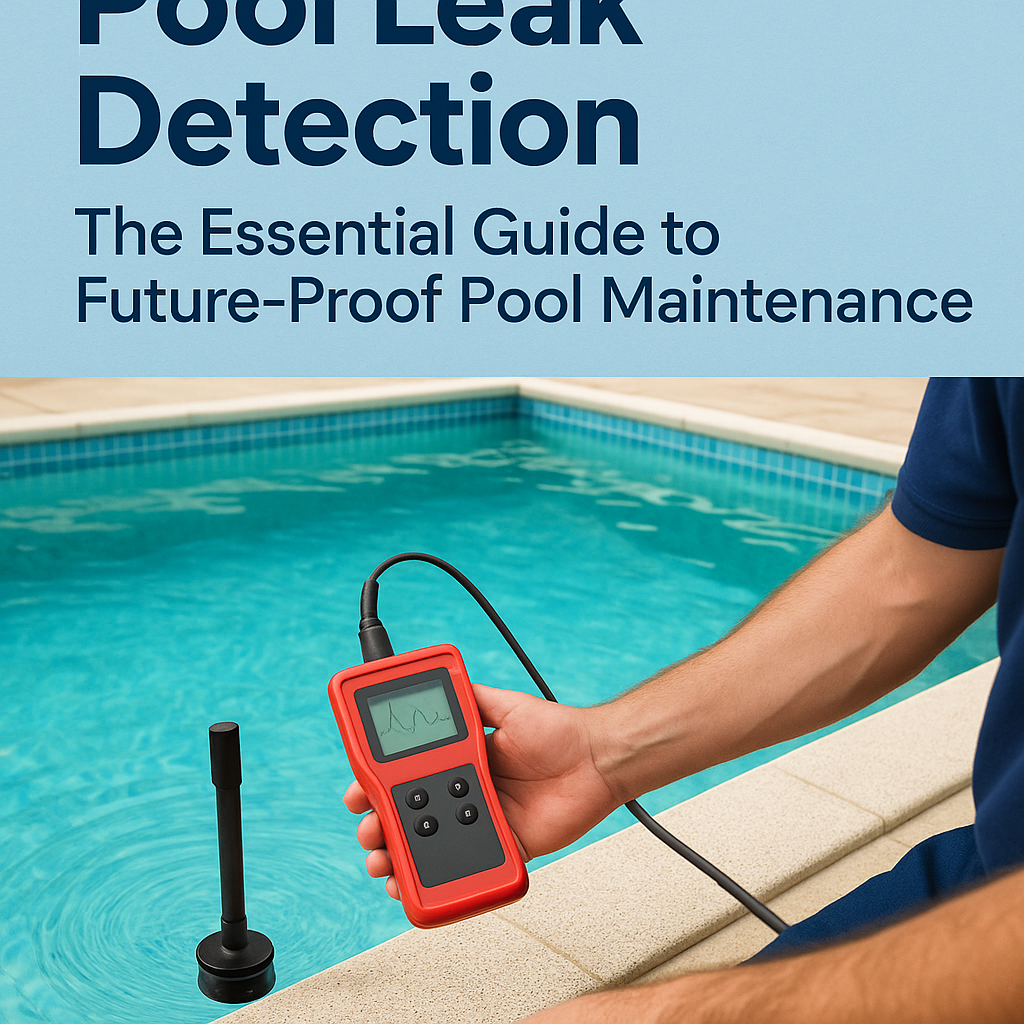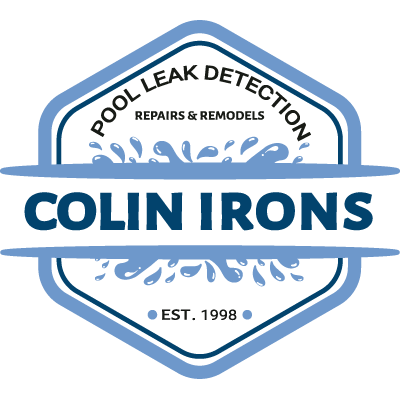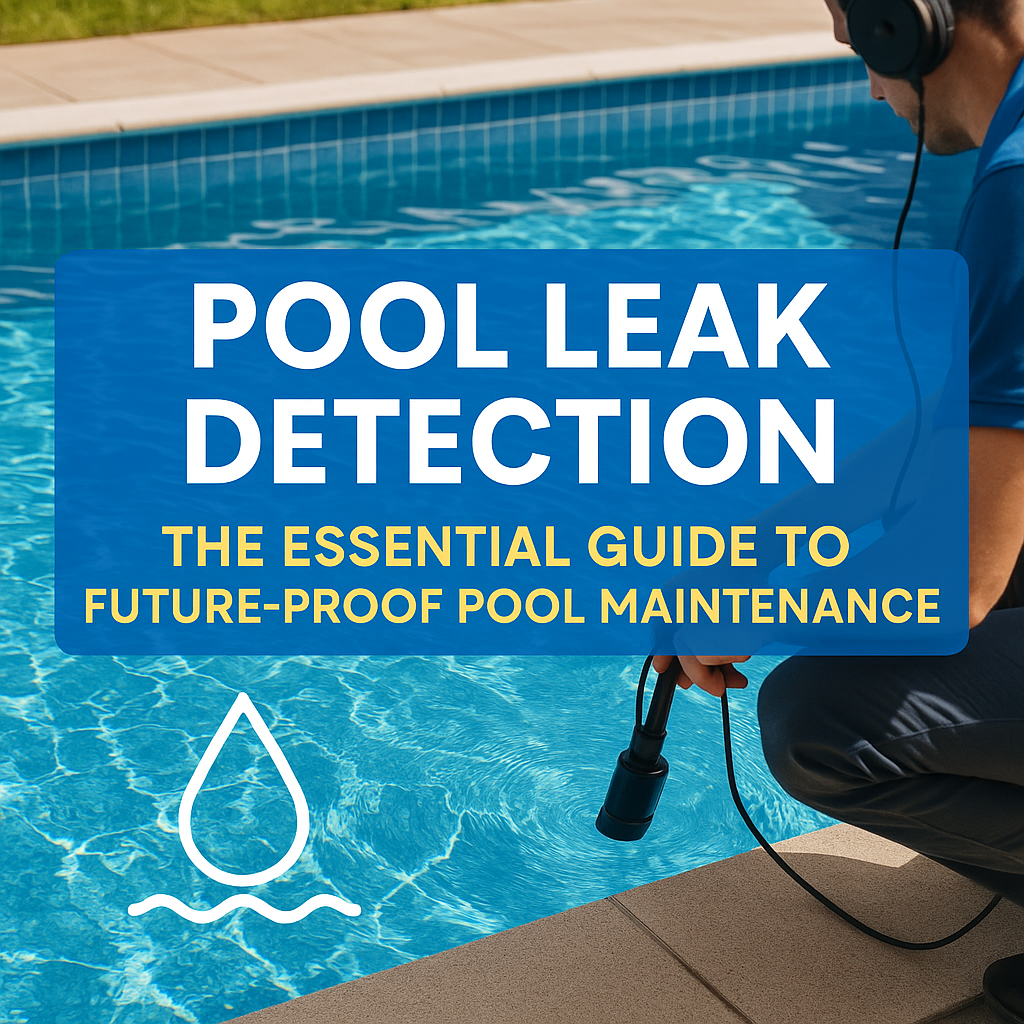Pool leak detection is a vital part of owning a swimming pool. It’s something that many pool owners overlook, but ignoring this critical step can lead to serious, costly problems down the line. It’s not just about finding a leak: it’s about future-proofing your pool and saving money in the long run. In this guide, we’ll detail the importance of pool leak detection, the signs to look for, how to find a leak, and the steps for pool leak repair. We’ll also discuss the role of regular pool maintenance in preventing leaks and other issues.
The Importance of Pool Leak Detection

In nearly every case, pool leaks start small. They might be barely noticeable at first, causing only a slight drop in water level over time. However, if left undetected and unrepaired, these small leaks can quickly develop into larger, more devastating problems.
One of the primary issues is water waste. In areas where water is scarce or expensive, a leak could lead to significantly higher water bills. More importantly, leaks can cause physical damage not just to your pool but also your backyard or even your home’s foundation if left unattended.
This is why pool leak detection is not an occasional task but rather an essential part of future-proof pool maintenance. It’s about staying proactive and preventing little issues from becoming large, expensive problems.
The Signs of a Pool Leak
So, how can one identify a potential pool leak? Here are several signs to watch out for:
1. Unexplained water loss: If your pool’s water level is dropping inexplicably, ruling out evaporation, this could be a sign of a leak.
2. Cracks in the pool deck: Leaks often lead to ground movement as the soil becomes oversaturated and shifts, resulting in visible cracks.
3. Wet spots around the pool: These may indicate water escaping from the pool.
4. Increase in water bills: An unexplained increase in your water bill is often a sign of a pool leak.
5. Pool deck is sinking or lifting: This suggests the leak may be in underground pipes.
Remember that these signs may not directly point to a leak, but they should prompt further investigation.
Pool Leak Detection Methods
If you suspect a pool leak, it’s critical to take action promptly. The bucket test is a common way to confirm a leak. Fill a bucket three-quarters full of water and mark the water level inside the bucket and the pool’s water level. After a few days, if the pool’s water level drops significantly compared to the bucket’s, you could have a leak.
Professional pool maintenance services often use specialized equipment and techniques, such as pressure testing and moisture meters, to pinpoint exactly where a leak is occurring. They also have the experience to detect the subtle signs that may indicate a leak.
Essential Steps for Pool Leak Repair
Once a leak has been detected, swift action is needed to contain any damage. The exact steps for pool leak repair will depend on the leak’s location and severity. In some cases, minor leaks can be fixed using underwater sealants or patches without draining the pool. However, more extensive leaks might require professional pool repair services.
Keep in mind that DIY repair methods may not always provide long-term solutions. If the leak recurs or multiple leaks are detected, it’s beneficial to engage a professional pool maintenance team with a track record in effective leak detection and repair.
Regular Pool Maintenance: Preventing Leaks and More
Regular pool maintenance is the cornerstone of a leak-free swimming pool. This includes regular checks for leaks, maintaining water chemistry, ensuring the integrity of pool equipment, cleaning, and adequate winterizing.
Essentially, the aim of preventive maintenance is to uncover any potential issues, like leaks, before they manifest into major complications. A routine pool maintenance schedule should be followed throughout the year, with more comprehensive checks before and after the pool season.
In conclusion, pool leak detection is an essential part of pool ownership. It’s not simply about spotting a problem but about proactively maintaining your pool to prevent issues in the future. By understanding the signs of a pool leak, employing effective detection methods, ensuring swift pool leak repair, and adhering to a regular maintenance schedule, you can extend your pool’s lifespan and enjoy it for many more years to come. Remember, when it comes to pool maintenance and leak detection, early detection is the key to preventing major structural damage and costly repairs.


